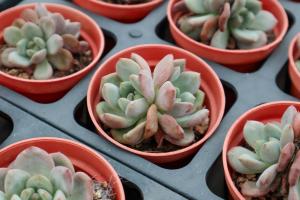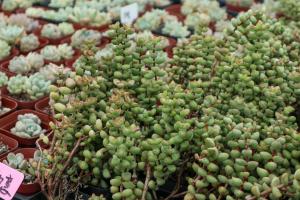Do Biodegradable Plant Pots Work?
The use of biodegradable plant pots has become increasingly popular in recent years. Made from materials like coconut fiber, rice husks, or starch-based products, these pots are designed to break down over time, reducing waste and providing a more sustainable option for gardeners. But do they really work? Let's take a closer look at the science behind biodegradable plant pots.
The Science of Biodegradation
To understand whether biodegradable plant pots work, it's important to understand how biodegradation works. Biodegradation is the process by which organic materials are broken down by microorganisms into simple compounds like water, carbon dioxide, and methane. Biodegradation requires the presence of microorganisms, moisture, and oxygen. In the absence of any of these elements, biodegradation cannot occur. This means that biodegradable plant pots will only break down if they are exposed to the right conditions.
How Biodegradable Plant Pots Work
Biodegradable plant pots are designed to break down over time when they are exposed to the right conditions. This means that they will only break down if they are buried in soil, exposed to moisture and microorganisms, and provided with enough oxygen to facilitate biodegradation. As the pots break down, they release nutrients into the soil, which can be beneficial for plant growth. However, it's important to note that biodegradable plant pots may take longer to break down than traditional plastic pots, and may not break down at all in certain conditions.
The Benefits of Biodegradable Plant Pots
Despite the limitations of biodegradable plant pots, there are several benefits to using them. First and foremost, they are more sustainable than traditional plastic pots, which take hundreds of years to break down and create a significant amount of waste. Biodegradable plant pots also release nutrients into the soil as they break down, which can be beneficial for plant growth. Additionally, biodegradable plant pots can be used as a marketing tool for environmentally-conscious consumers who are looking for eco-friendly products.
The Drawbacks of Biodegradable Plant Pots
While biodegradable plant pots have their benefits, there are also several drawbacks to consider. One of the biggest drawbacks is that they may not break down as quickly or completely as intended, especially in certain conditions. Biodegradable plant pots also tend to cost more than traditional plastic pots, which can be a barrier for some consumers. Additionally, biodegradable plant pots may not be as durable as traditional plastic pots and may break down prematurely, causing plants to fail.
The Verdict
So, do biodegradable plant pots work? The answer is yes and no. Biodegradable plant pots will only work if they are exposed to the right conditions, including moisture, microorganisms, and oxygen. If these conditions are not met, the pots may not break down as intended. While biodegradable plant pots have their benefits, they also have their drawbacks. Ultimately, the decision of whether or not to use biodegradable plant pots comes down to personal preference and a consideration of the potential benefits and drawbacks.

 how many times do yo...
how many times do yo... how many planted tre...
how many planted tre... how many pine trees ...
how many pine trees ... how many pecan trees...
how many pecan trees... how many plants comp...
how many plants comp... how many plants can ...
how many plants can ... how many plants and ...
how many plants and ... how many pepper plan...
how many pepper plan...































